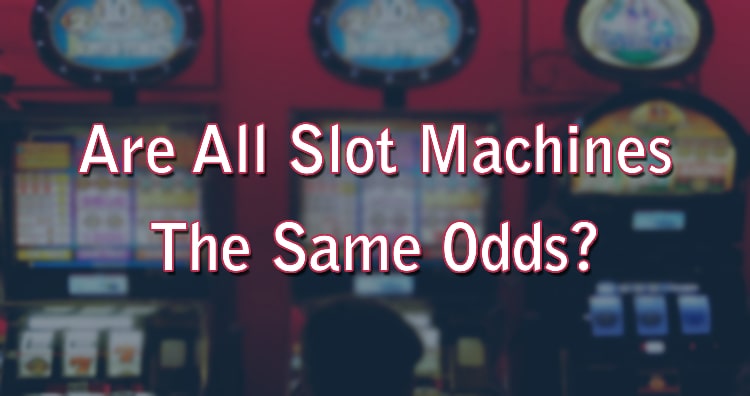
In the thrilling world of casino gaming, slot machines stand apart with their kaleidoscope of themes, designs, and features. However, there's a question that often arises, especially among novice players: Do all slot machines have the same odds?
The short answer is, no, they don't. However, the reasons behind this are multifaceted and intriguing, warranting a closer examination. Read on to learn more.
How Can You Check Slot Machine Odds?
Knowing how to check the odds of a slot machine is crucial for any player. Return to Player (RTP) rates and volatility levels are the two factors that best indicate a slot's odds.
The RTP is a theoretical estimate that indicates how much a slot machine may pay back to players over an extended period. For instance, a slot with an RTP of 95% suggests that it averages out as paying £95 back to players for every £100 wagered.
The RTP is typically listed in the game's payout table or within the game's help or information section. A high RTP theoretically implies better odds of winning, but remember that slots are random games of chance, and any winnings can never be guaranteed. It's crucial to understand that the RTP is a long-term average calculated over a vast number of simulated spins. Thus, actual results can deviate significantly.
The volatility rating of a slot machine can also provide valuable insight into its odds. Volatility describes the slot's theoretical behaviour in terms of win frequency and size. Low-volatility slots tend to offer smaller, more frequent payouts, while high-volatility slots offer larger payouts but less frequently. Again, this is never guaranteed due to the randomness of slot games.
Do Some Slots Have Better Odds?
Yes, certain slot machines may offer better odds due to their higher RTP percentages. However, it's essential to remember that the RTP is a theoretical figure calculated over millions of spins, and slot games are random in nature. So, while a higher RTP does suggest better odds, it does not guarantee a win.
The RNG ensures that each spin's outcome is entirely random and independent, making it impossible to predict the outcome of the next spin.
On the other hand, the volatility rating of a slot game can also provide clues about its odds. High-volatility slots may offer larger but less frequent payouts, while low-volatility slots tend to offer smaller, more frequent payouts.
So, in theory, higher RTP slots and lower volatility slots offer better odds than those with low RTP rates or high volatility ratings.
How Do You Pick A Slot Machine That Will Win?
There is no surefire way to pick a slot machine that will guarantee a win. Slots are random in nature, so winning is never guaranteed.
However, understanding the RTP and volatility of a slot can help to guide your choice. Slots with a high RTP and low volatility might offer better odds of winning, but the RNG ensures unpredictability in every spin.
When picking a slot machine, consider your playing style and risk tolerance. If you prefer a slot that is more likely to offer frequent, smaller wins, low-volatility slots with a high RTP may be a good choice. On the other hand, if you're willing to take more risk for the chance of bigger payouts, high-volatility slots may be more suitable.
Again, it's important to note that nothing is ever guaranteed in slot games, so your session may not necessarily reflect the RTP or volatility ratings.
Conclusion
In conclusion, while all slot machines might seem fairly similar at first glance, they indeed offer different odds due to factors like RTP, RNG, and volatility. Understanding these elements can help you to make more informed decisions as long as you remember that they are theoretical values calculated over a long period from an extremely large sample of spins.
Please gamble responsibly and never bet money you aren't comfortable losing.
